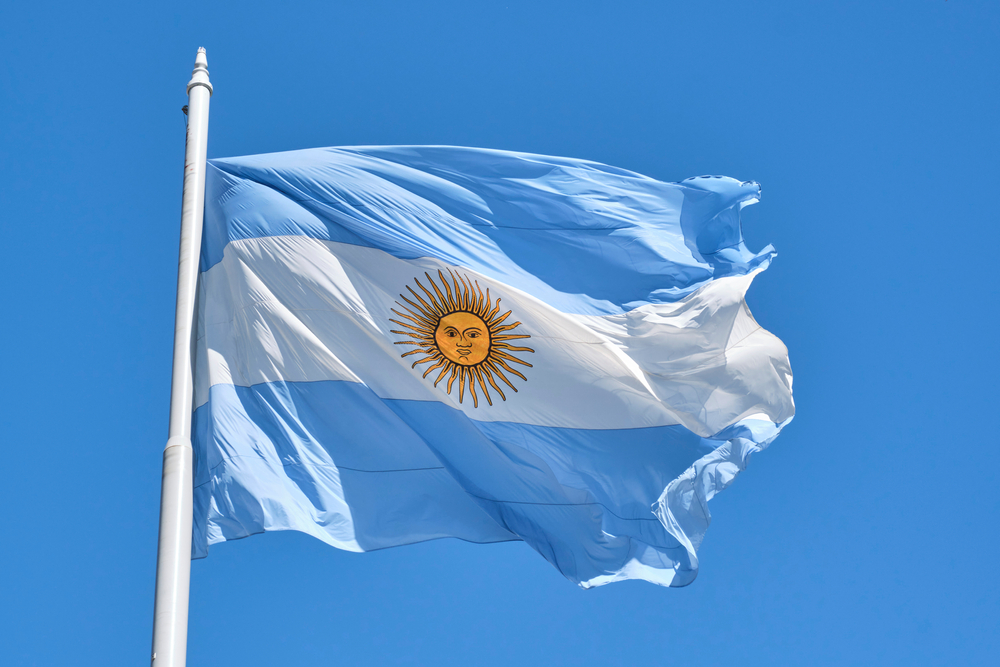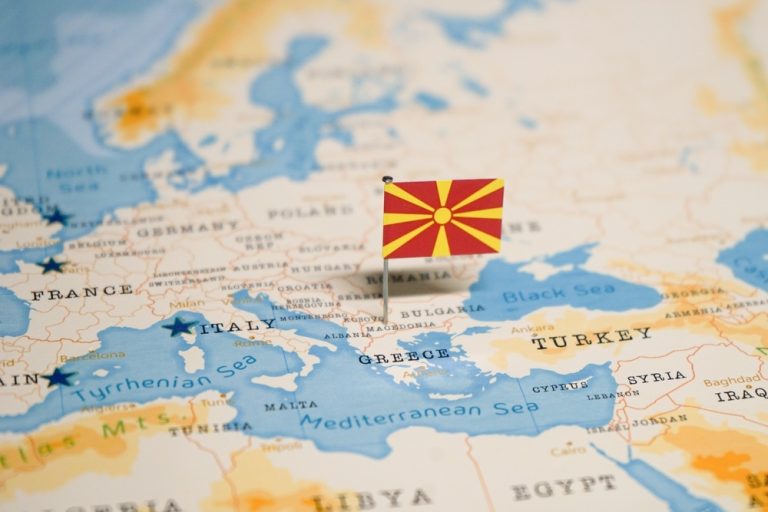
Results of the first months of the government of populist and libertarian Javier Milei. Part 2
In the first part of the article, we wrote that the newly elected president of Argentina, Javier Milei, was very cautious, and after getting his post, he refused to take many radical steps, thanks to which he was able to get elected and got the image of a crazy radical. However, the “Milei era” would be unimaginable without radical changes, although they may be very short-lived. The new president still showed principle and immediately promised the country shock therapy, because this is the only way to save Argentina, despite the fact that the cure may be worse than the disease and bury the economy. Argentina’s inflation has already exceeded 140% and there are fears that in 2024 it will turn into hyperinflation by thousands of percent. The Argentine peso exchange rate is peaking and Milei is expected to devalue it twice from 350 to 700 per dollar, although it has long been worth over 1,000 on the black market. Buenos Aires has almost no foreign currency reserves left, the central bank, which Milei decided not to close, owes $10 billion to external creditors. Apparently, the new president before his election wanted to simply close the central bank and write off the debts, but abandoned his “clever” idea, showing common sense. But even if Milei would continue to try to implement this crazy concept, he would not succeed, because the reins of the country’s economy have been taken over by the team of ex-president Macri, who promises not to allow dollarization of the country and to moderate Milei’s appetites. However, their sudden concern for sovereignty is deceptive, because these are the people who brought Argentina to default in 2020. They took a huge loan from the IMF for $60 billion, and it is still dragging Argentina to the bottom like an anchor. And there is nothing to pay for these debts, and even the optimist Milei admitted in his inauguration speech that the country has no money at all. So, unambiguously, there will be “optimization” of expenditures and sale of state property and land at throwaway prices, which will be due not so much to the libertarian views of the president as to the objective difficulties of Argentina. Milei began this “optimization” by initially announcing the dissolution of 9 ministries at once, which initially seemed like an election promise that would never be fulfilled. But last December 23, Javier Milei fired all civil servants hired after January 1, 2023, and almost 23,000 people were out of work at once. Suddenly, Milei’s wishes “successfully” overlapped with the deplorable state of the budget, and the public accepted this highly controversial reduction of officials. At the same time, the spontaneous privatization will unfold a fierce struggle between Chinese and American businesses competing for Argentina’s lithium belt. The outcome of this confrontation is not so obvious, despite the pro-American orientation of the new president. And against this backdrop, the leftists in Congress already want to impeach Milei, and sink his presidency as soon as the new head of state’s ratings collapse if the shock therapy fails.

But it is too early to write off Milei, and it should be canceled that the Argentine president in a few days not only dissolved 9 ministries and collapsed the peso from 350 to 700 per dollar. Now he is planning to disperse those who will oppose his shock therapy as hard as possible in order to protect his power. His detractors have even started joking that the president has “banned” protests so that in a year he can happily report that Argentine discontent with what is happening in the country has dropped by 99%. He made his security minister his rival from the center-right in the first round, Patricia Bullrich, who supported him in the second round. She immediately gave the police and gendarmerie the power to disperse protests and strikes, and to put participants on a special register of unreliable people. The left in Argentina had severely limited police powers, and this had negative repercussions, which became apparent amid the shoplifting crisis. Now Milei is taking advantage of public fatigue over rising crime to deal with his opponents. In January, the first wave of demonstrations and labor union strikes against Milei’s reforms began, and Buenos Aires held a large march against drastic cuts in public spending. But Milei is not going to give up, and his advisers even promised again to organize the dollarization of the economy, and Wall Street, perceiving it as a negative step, is preparing for the collapse of the peso to 2200 per dollar and inflation soaring above 220% in 2024, coupled with a severe recession. If that happens, Milei’s ratings will plummet and street protests will become massive. He realizes this very well, so he is trying to tighten state violence and crush the opposition in advance. But this is unlikely to help him, because the parliament is already threatening Miley with impeachment, and it is likely that at one point he will be forced to hastily retreat to the U.S., fleeing the consequences of his own policy.
But for now, Javier Milei is fearless, taking the path of shock therapy and accelerating the restructuring of the Argentine economy. He dismisses tens of thousands of officials, starts the process of privatization of the largest state-owned companies, and even allows bartering during the crisis amid the collapse of the peso. At the same time, there were no shock changes in foreign policy. It turned out even on the contrary, and after the inauguration Milei hurried to establish contacts with China, which he scolded during the election campaign. It is now clear why, immediately after the election, Beijing blocked Argentina’s credit line to the tune of 46 billion yuan, fulfilling a successful blackmail. This is what brought Buenos Aires to the brink of another default and immediately forced Milei to change his orientation 180 degrees and become soft and accommodating. Most of Argentina’s remaining foreign exchange reserves are in yuan, and without a credit boost from China, the country’s economy would instantly collapse, something even the libertarian president had to admit. Milei recently traveled to Washington, where he held talks with the IMF on the allocation of tranches, but it is still going on without much success. He also talked to Bill Clinton, who has connections to the U.S. financial sector, and at his suggestion, major U.S. hedge funds are already off to a low start, hoping to participate in the privatization and redistribution of Argentine property. To give the U.S. the right signals, in late December 2023, Milei sent Congress a 351-page, 664-point reform blueprint. Milei proposed, among other things, privatizing 41 state-owned companies, a tax amnesty for undeclared assets, but tougher penalties for participating in protests, and giving police more freedom to use firearms. In addition, in letters to the Russian president and the Chinese leader, he rejected, albeit informally, the invitation to become a member of BRICS. However, China is not lagging behind in this extramural “financial war”, and Beijing is ready to use leverage on Argentina to keep it in its sphere of influence. This includes privatization of the lithium belt and scarce rare earth metals, which play a key role in the technological race with the United States.

As a result, in early 2024, Javier Milei’s shock therapy in Argentina has another beneficiary in the form of American oil giants Chevron and Exxon. They are rubbing their hands together, hoping to gain access to the colossal Vaca Muerta shale oil and gas field in northern Argentina. As part of his huge reform package, which is being passed in one bill, Milei wants to deregulate and privatize Argentina’s oil and gas sector. This would allow the Americans, as well as Britain’s Shell, to buy back fields that are conservatively estimated to contain under a billion barrels of shale oil at an undervalued price. The U.S. is in dire need of oil supplies amid the OPEC+ conflict, and it will be possible to solve part of the U.S. and UK energy problems at Argentina’s expense. It is not for nothing that Milei worked in the American financial sector in the past, and then in the influential British bank HSBC: it is necessary to pay back the debts to those who brought him into “adulthood”. Even more drastic cuts in government spending, the firing of thousands of officials and the privatization of the economy have already sparked widespread protests, and in response, the newly minted president has proposed giving up to 6 years in prison for a gathering of three or more people, which could be considered an illegal rally. Milei already wants to declare a State of Emergency in Argentina until the end of 2025 to make any decisions to bypass Congress. After a period of calm, a quiet revolution has begun in foreign policy, with a refusal to join BRICS and an apparent cooling in relations with China, though clearly not on the titanic scale that was talked about before the election. Beijing has already frozen credit lines to Buenos Aires, which threatens Argentina with default, which is why Milei is in such a hurry to tighten the regime, trying to sell the country to the collective BlackRock and Shell before he is swept away by protests.
Populist cover for “difficult” domestic political and economic decisions, as always, provides populism in external steps, and Milei once again raised the issue of the status of the Falkland Islands. He demanded that London negotiate on an international platform and arrange for the return of the Falklands in the 1997 Hong Kong scenario. For Milei, this is not exactly an abstract populist issue, because the Falkland Islands, and in the Argentine interpretation the Islas Malvinas, are in close proximity to major oil and gas deposits of at least 320 million barrels. Milei is now liberalizing Argentina’s oil industry, which is already claimed by the Americans. At the expense of revenues from hydrocarbon exports, Milei dreams of solving the debt crisis in Argentina, and at the same time to play on the patriotic feelings of the Argentines, who are already actively rallying against his “shock therapy”. And in the case of the return of the islands or even an ostensible fight for them, it is possible to buy the protest moods with the help of a convenient “scarecrow” in the face of the unloved Great Britain. In London, a Foreign Office representative for the American colonies promptly visited the Falklands, and the British Navy sent a patrol ship there. But the British have no real capability to fight for the Falkland Islands right now, especially against the backdrop of depleted weapons arsenals due to the war in Ukraine and the greed of officials overseeing the military-industrial complex In addition, because of the islands’ connection to the interests of U.S. oil companies, the Falklands could become another front in the non-public confrontation between Washington and London. They are already actively competing in Ukraine and in relations with China, and may begin to do so in Latin America. In fact, in case of a complete failure of reforms, this is an excuse for Milei to go to extremes and organize a “small” populist war, just to stay in power. However, the Argentine president has his own cold calculation, but he acts according to his own strange principles. Thus, at his will amendments to the law on elections were adopted, and now in Argentina there is a single day of voting, manual counting of votes, paper ballots and obligatory requirement of documents with photos when voting. This means that on this issue, Milei is not seeking to usurp power. And his real benefit for the country can be assessed in a couple of years, when it will be clear whether he has saved or destroyed the Argentine economy and social sphere.


Average Rating